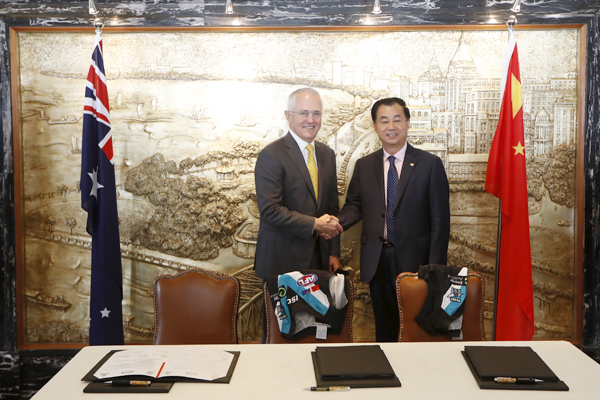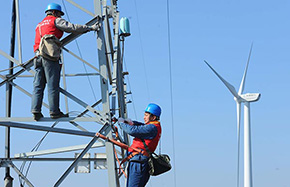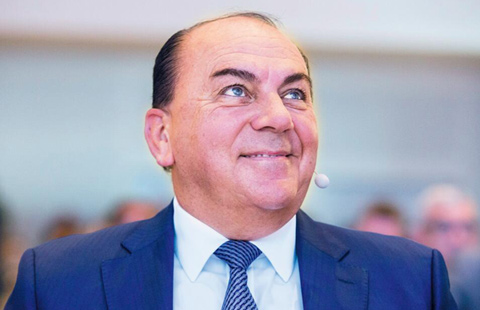Chinese money -not a big, bad wolf
 |
|
Australian Prime Minister Malcolm Turnbull (left) shakes hands with Gui Guojie, general manager of Shanghai CRED Real Estate Stock, after signing a Memorandum of Understanding at a hotel in Shanghai on April 14, 2016. ALY SONG / REUTERS |
The reality of foreign investment in the real estate market in Australia is that the injected capital serves to allay the legislative and economic conditions that have caused the housing affordability crisis in the first place.
Laurenceson said that factors behind the crisis include increased investment in the market by superannuation or pension funds and real estate trusts, which at the domestic level allowed for easy access to plentiful financing.
"In Australia we have record low interest rates, so now property speculators can borrow even more than ever before," he said.
"That's the really big change over the last few years."
Professor Hans Hendrischke, from the University of Sydney Business School, told Xinhua that although the part that interest rates played in housing affordability was significant, the government had to do more to rectify the core issues of supply and affordability which would rightly shift the discussion away from foreign investment.
"What the government is doing is regulating and providing barriers to local and foreign investors to prevent overheating of the market," Hendrischke said.
"The government is trying to be seen as doing something to increase affordability, but I don't think minor measures on the fringe do much to the overall economic elements that drive the real estate market."
Foreign direct investment can never be eradicated in Australia, because it is crucial for the growth of the country as a whole. But Rodgers suggested that some measures could be introduced in order to shape the social impact of investments coming in from overseas.
"What we need is a very nuanced discussion about who these foreign investors are and what they are doing with their capital," he said.
"It might be that we need a taxation regime put on foreign capital, that is then put into a fund for affordable housing, but that will reduce the appeal of Australian property to foreign investors," he said.
"It's a complex situation and how you get that capital to produce good social outcomes is a challenge."
In the meantime, analysts say the reality is that foreign investment in real estate, particularly from China, appears not to be the big, bad wolf as some Australian people have come to believe. Figures, analysts say, clearly support that fact.
Rather, the consensus of politicians, economists and analysts is that foreign investment in real estate is needed to not only achieve economic growth and increase housing supply, but establish a partnership with China and Asia for a more fluid global marketplace.
With the world and Australia heading in a globalized direction, Rodgers said he looked forward to a time where the lines between "local" and "foreign" were blurred.
"Australians going to Asia, people from Beijing coming to Sydney, people in Australia going to work in Singapore, this mobility will challenge our ideas about what it is to be local and foreign," Rodgers said.
"In the future, I don't think current analyses are fully going to capture the complexity of where the globalization of real estate is going."























